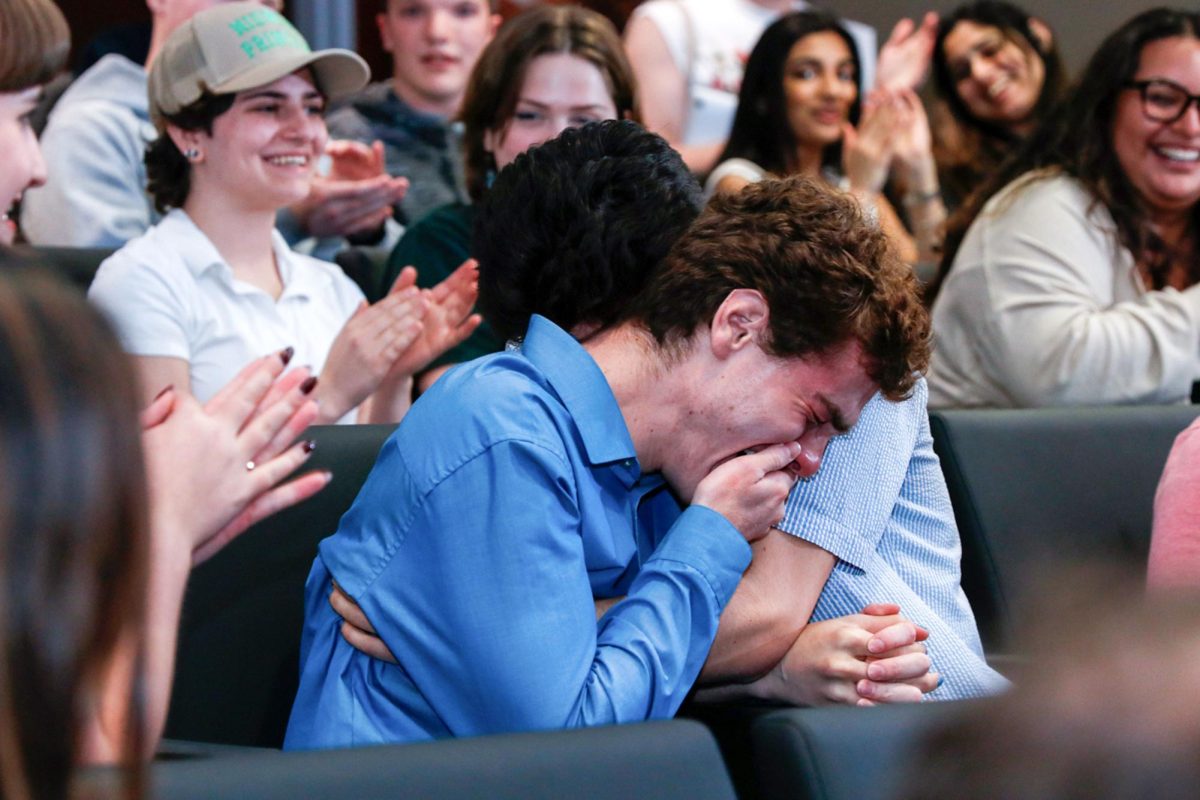Updated: Aug. 30, 2021 at 10:23 p.m.
Student Association leaders spent the summer meeting with officials to expand health and transportation services for students and working to fill vacancies in the SA Senate.
The senate met three times before July to confirm nominees for five senator positions and more than 20 executive cabinet positions to start the academic year with almost fully staffed legislative and executive branches. SA leaders said they also met with officials this summer to kickstart new initiatives, proposing a U-Pass for discounted Metro access, expanding the SafeRide program and making health services more affordable at the Colonial Health Center.
SA Vice President Kate Carpenter said she posted regular video updates on Instagram, which she will continue this fall, about her meetings with administrators to remain transparent with the student body. She said this semester seems different from most because a greater number of students, especially freshmen and sophomores, are excited to be back on campus following more than a year of virtual learning.
“I’m really, really excited for this upcoming semester,” Carpenter said. “It is like re-evaluating the narrative of what GW is and what the culture around it is. I think we come into this year with a really positive attitude.”
Carpenter said she also worked with transportation officials and the SA secretary of military affairs to provide free transportation for ROTC students attending off-campus classes.
She said she is currently working with Destiny Jackson, the University’s director of transportation and logistics, to expand the SafeRide program, which offers free late-night rides to students on campus. Carpenter said she’s asking officials to extend the program’s boundaries from the edge of Foggy Bottom’s residence halls and academic buildings to the West End neighborhood and the Lincoln Memorial to serve more students who live off campus.
Carpenter said the SA released a student survey earlier this month to determine the best pickup locations for students living in West End, and she will introduce legislation at Monday’s meeting to encourage the expansion of SafeRide.
“Hopefully, we’ll be able to get it done as soon as possible to make sure that students, especially women, aren’t having to walk home to West End at night,” she said.
Carpenter said she is discussing with officials the proposal of enrolling in U-Pass, a Metro program that would provide students unlimited rides for a discounted price on the Metrorail and Metrobus throughout each semester. The cost to implement this program would be included in the University’s tuition, according to WMATA’s website.
Officials have repeatedly refused to implement the U-Pass program even in the face of years of advocacy from students – nearly 75 percent of students voted in favor of the U-Pass program in 2016. Previous SA candidates have campaigned on obtaining U-Pass for GW students but have yet to fulfill that promise.
“Hopefully, finally after like six, seven years of talking about it, we’ll finally be able to leave that legacy of getting U-Pass, but we’ll see on that,” Carpenter said.
SA President Brandon Hill said he had met with officials like University President Thomas LeBlanc and members of the Board of Trustees monthly. He said trustees have told him that he will be “very involved” in the search process for LeBlanc’s successor.
Hill said SA leaders have also met with Imani Cheers, the interim vice provost for undergraduate education, to discuss diversity and inclusion education requirements.
Catherine Morris, one of Hill’s chiefs of staff, said SA leaders hope to push officials to make it easier for students to use their own private health insurance, outside of the Student Health Insurance Plan, for CHC services to improve students’ access to health care. She said some students struggle accessing health care, often having to visit the GW Hospital or an urgent care clinic to find a health care provider that accepts their insurance.
Morris said executive cabinet members will prioritize finding a new head of the CHC to replace Dean of Students Cissy Petty, who has served as the interim director since 2018. Officials said Petty will serve as the head of the CHC until they find a permanent director.
Morris said the executive branch is also pushing to add diversity and inclusion classes to students’ course requirements in each school. She said SA leaders would push administrators to offer a range of course options for students to fulfill their diversity and inclusion requirement.
She said the SA established additional secretary and executive branch positions to increase the number of students working on more specific projects, like completing market-basket research. She said the senate confirmed 46 cabinet positions throughout the summer, making the current cabinet the largest in SA history.
“We have a lot more members of the cabinet that are focusing on their specific issues which we think will allow people to like really delve into what they’re interested in,” Morris said.
Zachary Nosanchuk, Hill’s other chief of staff, said the executive cabinet and its staff will work to send out surveys, write proposals and build relationships with administrators to determine how the SA can best assist students. He said the SA will promote existing academic and health resources, like news subscriptions and mental health counseling, through its Instagram page and in-person events, like question-and-answer sessions in Kogan Plaza.
“These are different GW press outlets, so we are trying to find new ways to make sure that we’re not always reaching the same audience over and over and over again, who happens to follow the SA Instagram,” Nosanchuk said.
SA Sen. Cordelia Scales, SEAS-U and senate chairperson pro tempore, said the senate filled five seats that she had nominated this summer — one undergraduate, two graduate and one at-large seat — as the chair of the governance and nominations committee. She said the committee will submit nine more nominations to the senate at its meeting Monday, leaving one vacant seat remaining.
The senate began its term last spring with 14 senate vacancies, including 12 graduate seats, and Scales’ committee evaluated and nominated applicants to the entire senate for these positions. Scales said one at-large Milken Institute School of Public Health senator resigned earlier in August, so she hopes the committee can fill that position in the coming months.
Scales said she will create “cheat sheets” and host workshops on the updated SA bylaws for senators and students to make them more accessible for the student body. The senate overhauled its bylaws last spring to fit with updates made to its constitution last year.
“My goals for this coming semester with our governing documents are to make them a lot more accessible and easy to understand,” Scales said. “So I want to make sure that they are in all of the SA social media Linktrees and are literally a click away.”
This post has been updated to correct the following:
The Hatchet incorrectly reported that Nosanchuck is the senate’s chief of staff. He serves as one of Hill’s chiefs of staff. We regret this error.







